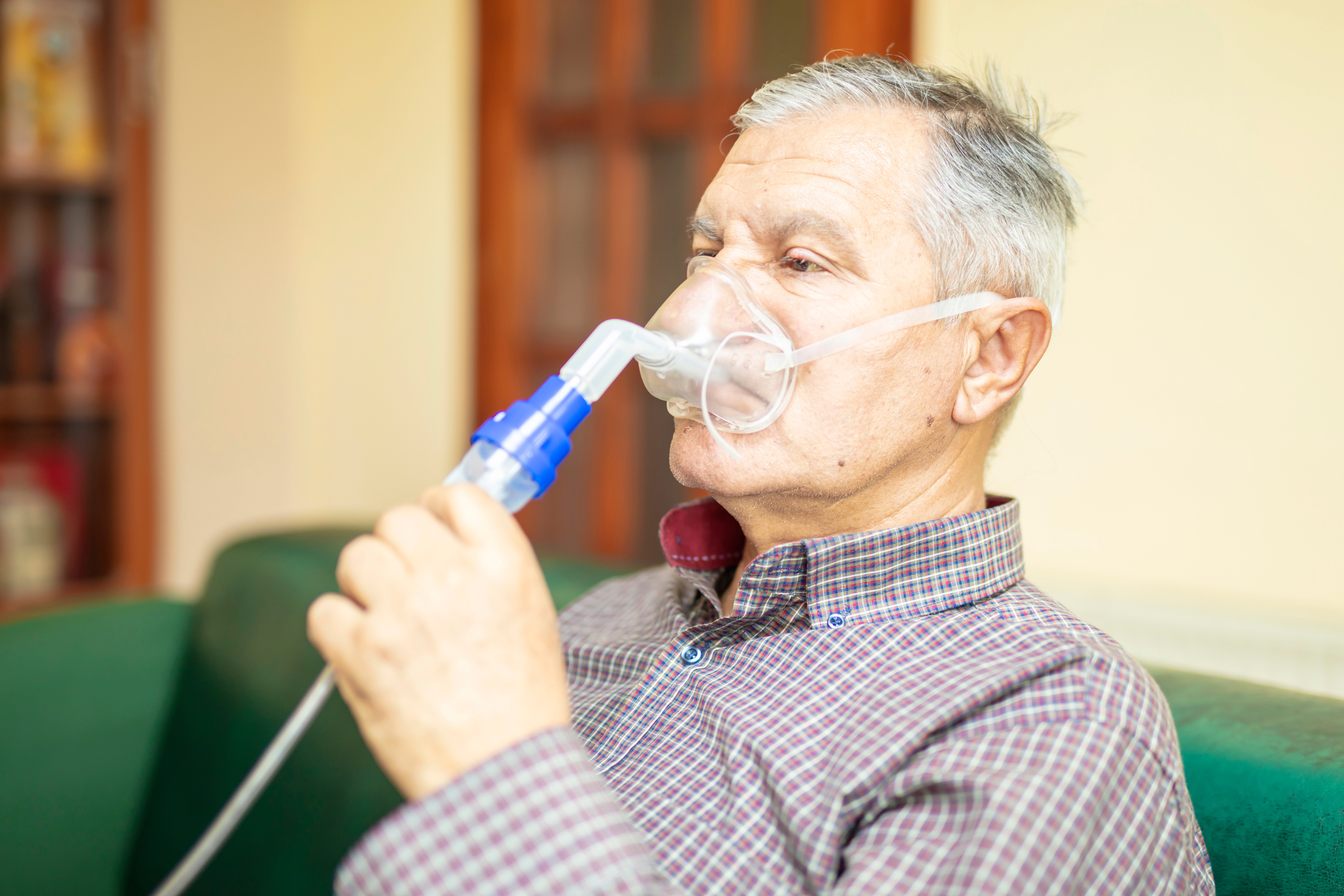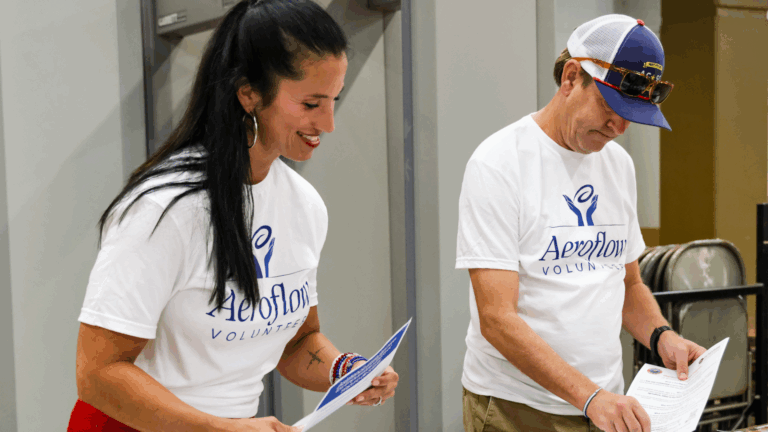Dust, pet dander, pollen, and smoke. Each of these words can strike fear in the hearts of those who suffer from seasonal allergies, depending on what season it is. However, allergies aren’t only for adults to worry about. They can affect your children as well. If you find them coughing or wheezing as the seasons change, they may need a nebulizer for allergies and asthma. Sometimes, the treat isn’t just seasonal. Allergens and asthma can attack all year round.
Nebulizer For Allergies And Asthma
How Allergens Contribute To Asthma
When allergens such as pet dander enter the body through your nose, lungs, skin, or eyes, your body creates chemicals called lgE antibodies and release histamines. Histamines try to remove the allergens by causing inflammation, swelling, watery or itching eyes, a runny nose, and sneezing. In some cases, allergic asthma may cause the immune system to overreact and tighten the airway muscles. As a result, the airways can become inflamed and flooded with thick mucus, leading to symptoms such as wheezing, coughing, rapid breathing, chest tightness, and shortness of breath.
Spring And Summer Allergens
 Pollen is everywhere you look in the spring and summer. For months flowers, trees, grasses, grains, and more release pollen in the air, causing people to sniffle, sneeze, and wheeze. On top of that, even if you think you’re safe, away from all of the blooms, pollen can travel for miles and set off your histamines. Then physical activities that involve running through the grass or using your lawnmower can stir up these particles, causing them to settle on multiple surfaces from your clothes, the walls, vehicles, and more.
Pollen is everywhere you look in the spring and summer. For months flowers, trees, grasses, grains, and more release pollen in the air, causing people to sniffle, sneeze, and wheeze. On top of that, even if you think you’re safe, away from all of the blooms, pollen can travel for miles and set off your histamines. Then physical activities that involve running through the grass or using your lawnmower can stir up these particles, causing them to settle on multiple surfaces from your clothes, the walls, vehicles, and more.
You may think it’s safe to relax when the spring/summer showers begin to wash all that pollen away, but the rain actually promotes the growth of weeds and other plants. The wind accompanying rainstorms can also stir up and spread particles.
In the summer warmer days promote the release of pollen, especially from grasses. Which is why hay fever often occurs during summer, when it’s time to cut hay.
Smog tends to be worse during the summer as it creates ozone at the ground level as car exhausts and fumes spread chemicals into the air. The calm winds of summer and strong sun do little to disperse these particles, leaving smog to settle like clouds.

Fall And Winter Allergens
In the fall as we run the heater for the first time in months and the damp leaves fall to the ground you may start to notice your eyes becoming itchy or a little difficulty breathing. This is because ragweed pollen is released in the fall and can travel for miles. Even if you don’t live near ragweed the pollen can find you. Plus, the damp leaves create the perfect environment for mold.

In the winter, turning the furnace on sends mold and dust up into the air. Plus, more dust collects and dust mites may run rampant. Also, you probably spend more time indoors with your pets who you might be allergic to.
Cold dry air can worsen asthma. Plus, when it’s cold, people have more sinus issues and upper respiratory infections that can trigger and worsen attacks.
Also, allergies can contribute to asthma and trigger attacks or make attacks worse. This is known as allergic asthma or allergy-induced asthma. If you’re allergic to mold, dander, dust, and more, inhaling them causes your body to release histamine. Swelling, inflammation, coughing, sneezing, mucus, and more may occur as a result, making it more difficult to breathe.
How Do Nebulizers Help?
 Nebulizers are essentially an asthma machine even though they provide breathing treatments for a variety of lung conditions such as chronic bronchitis, chronic obstructive pulmonary disease (COPD), cystic fibrosis, and more.
Nebulizers are essentially an asthma machine even though they provide breathing treatments for a variety of lung conditions such as chronic bronchitis, chronic obstructive pulmonary disease (COPD), cystic fibrosis, and more.
Nebulizer machines are for patients who need breathing treatments to help them easily breathe on their own. There are electric and battery-powered portable nebulizers that you can easily carry with you to use at a moment’s notice.
They have a base that holds an air compressor, a container for liquid medicine, tubing to connect the medicine and compressor, and a mouthpiece or mask. Nebulizers work by turning liquid medicine into an inhalable mist.
Users simply have to hold the mask to their face and inhale, making nebulizers an easy to use option for children that are too young for inhalers or those with severe asthma.
Nebulizer treatment generally consists of sitting still for 10 to 15 minutes a few times a day. A metered dose of the medicine is quickly pumped into your throat to inhale and absorb for quick relief.
 Typical inhalable nebulizer medicines include:
Typical inhalable nebulizer medicines include:
- Albuterol
- Ipratropium
- Budesonide
Receiving Your Nebulizer Through Insurance
You might be able to have your nebulizer machine covered by insurance. Simply fill out our quick qualification form to get started and we will contact you with your options. Then we will speak with your insurance company and doctor to make sure everything is taken care of to have your nebulizer shipped right to your front door! We carry pediatric nebulizers and nebulizers for adults.
Preventing Allergies And Asthma
In the fall and winter months, along with getting your nebulizer, there are a few steps you can take to reduce irritation and prevent allergy attacks.
- Clean on a regular basis to get rid of dust and allergens. Wash the binds and curtains. Wash your bedding at least once a week. Sweep, mop, and vacuum often.
- Avoid sitting near fires. You could be allergic to it, it can irritate your sinus cavities, and it triggers asthma attacks.
- Take a shower before going to bed. During the day your hair and clothes collect dust and allergens that you don’t want to put in your sheets, which is why you should rinse off!
- Wear a mask to filter out pollen while doing outdoor activities.
- Check the pollen report before considering outdoor activities. If you decide to still exercise outdoors during a high pollen alert, avoid obvious triggers.
- Pollen is most active in the mornings and evenings, so plan your outdoor activities accordingly to avoid those times.
- If you exercise outdoors during the winter, warm up for about 20 minutes inside first to prepare your lungs for the shock of the cold air.
- Bundle up before exposing yourself to cold temperatures. Use a scarf or facial wrap to keep the air you inhale warm.
- Stay healthy by exercising, eating fruits and veggies, washing your hands regularly, and by getting at least 8 hours of sleep a night to help fend off colds and flu.
- Change your air filter to prevent dust, mold, and allergens from recirculating into the air. Also, you can use a dehumidifier to kill dust mites.
- Use your nebulizer on a regular basis. Using it at the same times every day will reduce the chance of having an asthma attack.
- Use allergy or asthma medications as directed by your doctor.



